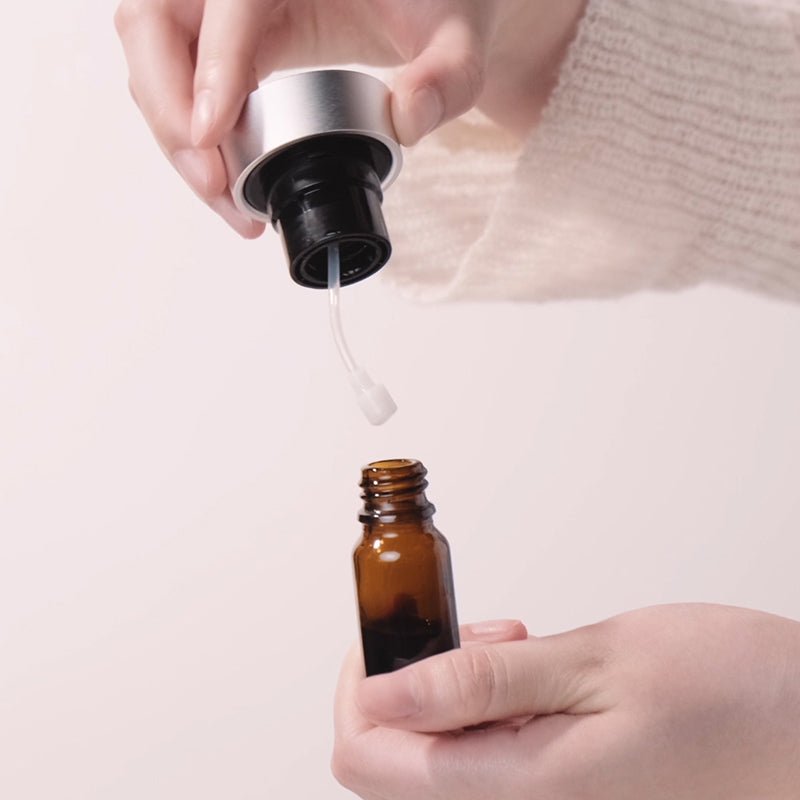Essential oils have gained significant popularity over the past few years for their aromatic and therapeutic properties. These concentrated plant extracts offer numerous benefits, from relaxation and stress relief to skincare and household cleaning. However, with their potent nature, it's crucial to understand the importance of proper usage and dilution to ensure safety and maximize benefits. This guide will walk you through the essential aspects of essential oil safety, focusing on correct application and dilution techniques.
Understanding Essential Oils
Essential oils are highly concentrated extracts derived from plants. They capture the plant's scent, flavor, and beneficial properties. Some popular essential oils include lavender, tea tree, eucalyptus, and peppermint. Each oil has unique characteristics and uses, making them versatile tools in aromatherapy and natural health.
While essential oils are natural, they are also powerful. Misuse or overuse can lead to adverse effects such as skin irritation, sensitization, or even toxicity. Therefore, it's essential to handle these potent substances with care.
Essential Oil Safety Guidelines
- Quality Matters
When choosing essential oils, quality is paramount. Not all essential oils are created equal. Look for pure, therapeutic-grade oils from reputable suppliers. Essential oil Australia products are known for their high standards and purity. Always check for certifications, such as organic or GC/MS-tested oils, to ensure you're getting a safe product.
- Patch Test
Before using a new essential oil, conduct a patch test. Apply a small diluted amount of the oil on your forearm and wait for 24 hours to see if any irritation or allergic reaction occurs. This simple step can prevent unpleasant reactions when using the oil on a larger area.
- Dilution is Key
Due to their potency, essential oils should never be applied directly to the skin without proper dilution. Dilution reduces the risk of skin irritation and sensitization. Use a carrier oil, such as coconut, jojoba, or almond oil, to dilute essential oils. The recommended dilution ratio for adults is typically 2-3% (about 12 drops of essential oil per ounce of carrier oil). For children, elderly individuals, or those with sensitive skin, a 1% dilution (6 drops per ounce) is advised.
- Safe Inhalation Practices
Inhalation is a popular method for experiencing the benefits of essential oils. However, direct inhalation from the bottle can be overwhelming. Instead, use a diffuser to disperse the oil into the air, or place a few drops on a tissue or cotton ball. Ensure the room is well-ventilated to avoid overpowering aromas.
- Internal Use Caution
While some advocate for the internal use of essential oils, this practice should be approached with caution and under the guidance of a qualified professional. Essential oils are highly concentrated, and ingesting them can lead to serious health issues if not done correctly. Always consult with a healthcare provider before considering internal use.
Proper Dilution Techniques
Understanding how to dilute essential oils properly is crucial for safe usage. Here are some guidelines for various applications:
- Topical Application
For general use on the skin, follow these dilution guidelines:
- Adults: 2-3% dilution (12-18 drops of essential oil per ounce of carrier oil)
- Children: 1% dilution (6 drops per ounce of carrier oil)
- Sensitive Skin: 1% dilution (6 drops per ounce of carrier oil)
- Facial Application
Facial skin is more delicate and sensitive. Use a lower dilution ratio:
- Adults: 0.5-1% dilution (3-6 drops per ounce of carrier oil)
- Aromatherapy
For diffusion, add 3-5 drops of essential oil per 100 ml of water in your diffuser. Adjust the amount based on the size of the room and your preference.
- Bathing
To enjoy an aromatic bath, dilute essential oils before adding them to the water. Mix 5-10 drops of essential oil with a tablespoon of carrier oil or a dispersant like Epsom salts before adding to the bathwater. This prevents the oils from floating on the water's surface and causing skin irritation.
Essential Oils vs. Fragrance Oils
It's important to differentiate between essential oils and fragrance oils. While both are used for their aromatic properties, they have distinct differences:
- Essential Oils: These are natural extracts obtained from plants and have therapeutic properties. They are used in aromatherapy, skincare, and natural remedies.
- Fragrance Oils: These are synthetic compounds created to mimic natural scents. They do not offer the same therapeutic benefits as essential oils and are primarily used in perfumes, candles, and other scented products.
When purchasing essential oils, especially from suppliers in essential oil Australia markets, ensure you are getting pure essential oils rather than synthetic fragrance oils to enjoy the full range of benefits.
Conclusion
Essential oils offer a myriad of benefits, from enhancing relaxation to supporting skin health. However, their potency requires careful handling and proper dilution to ensure safety. Always choose high-quality oils, perform patch tests, and dilute appropriately before use. By following these guidelines, you can safely incorporate essential oils into your daily routine and harness their natural benefits.
Remember, while essential oils can enhance well-being, they are not a substitute for professional medical advice or treatment. Always consult with a healthcare provider for serious health concerns. With the right knowledge and precautions, essential oils can be a valuable addition to a holistic lifestyle.


